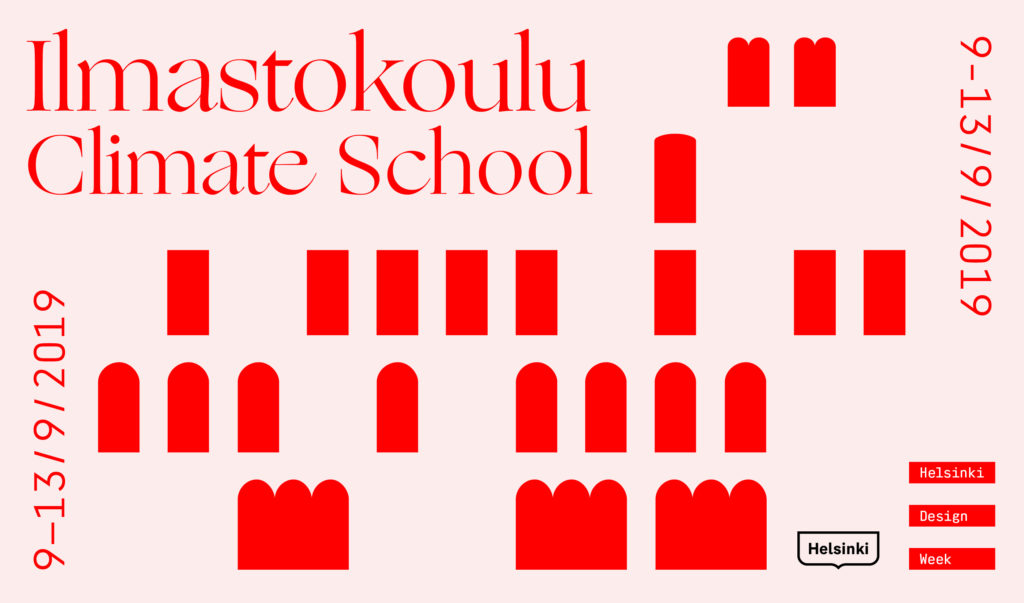Climate School was aimed at young people in particular. Morning hours were devoted to presentations by specialists and afternoons to the development of a Climate Change Map by design methods.
The Climate School week first addressed the root causes of climate change, city-wide themes, transport, housing and energy consumption. As Climate School progressed, the focus shifted to the individual and the everyday choices of city residents.
Design thinking was evident in the Climate School discussions and workshops conducted using design methods.
Climate change was approached from several angles, including consumption and design when the DAMY association (Friends of Design Museum and Museum of Finnish Architecture) brought designers to the school to create design items from recycled construction waste.
The week ended with a future theme and the publication of the Climate Change Map produced with young people using design methods.
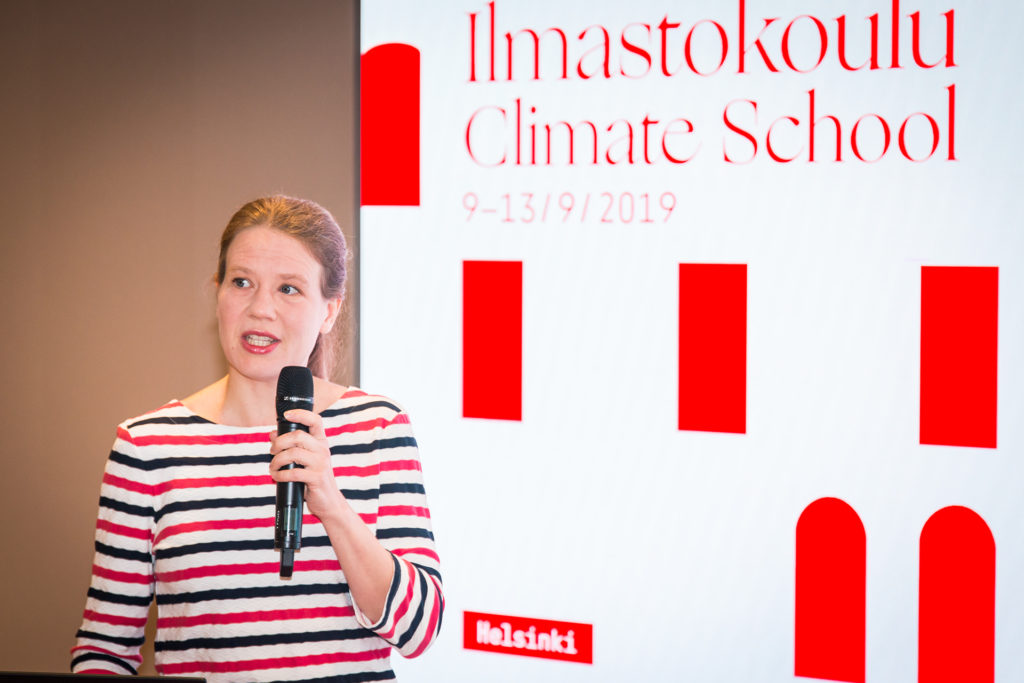
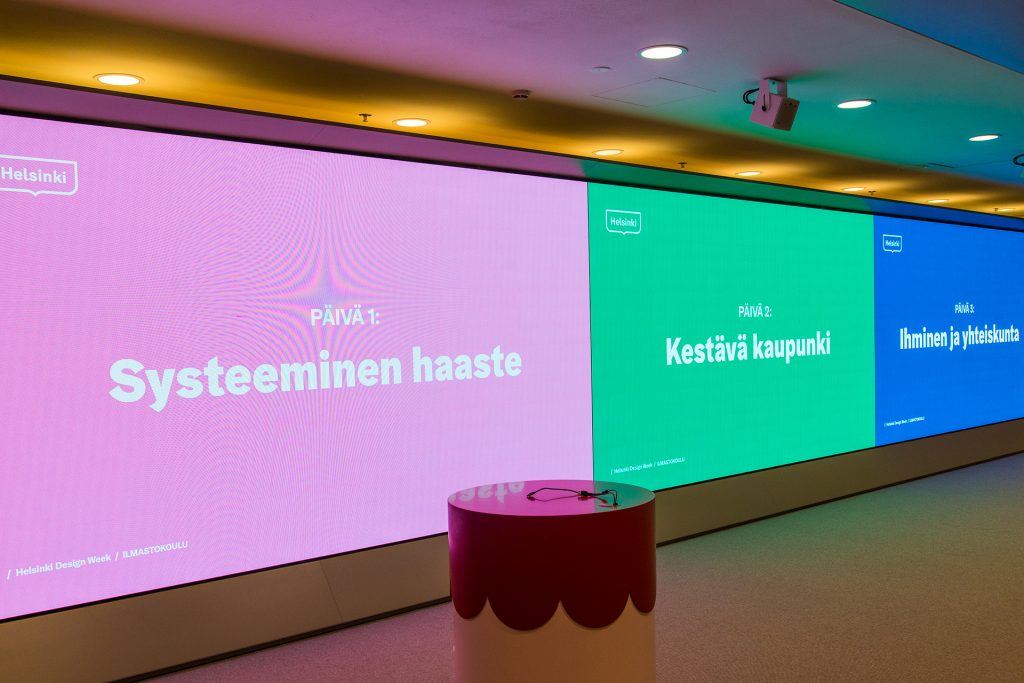
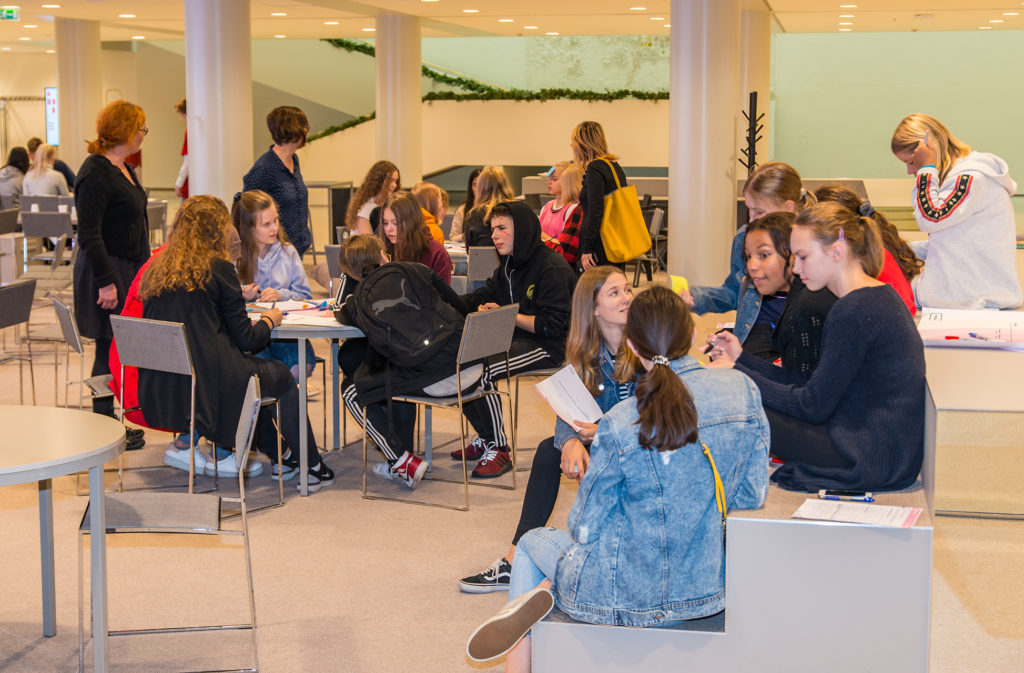
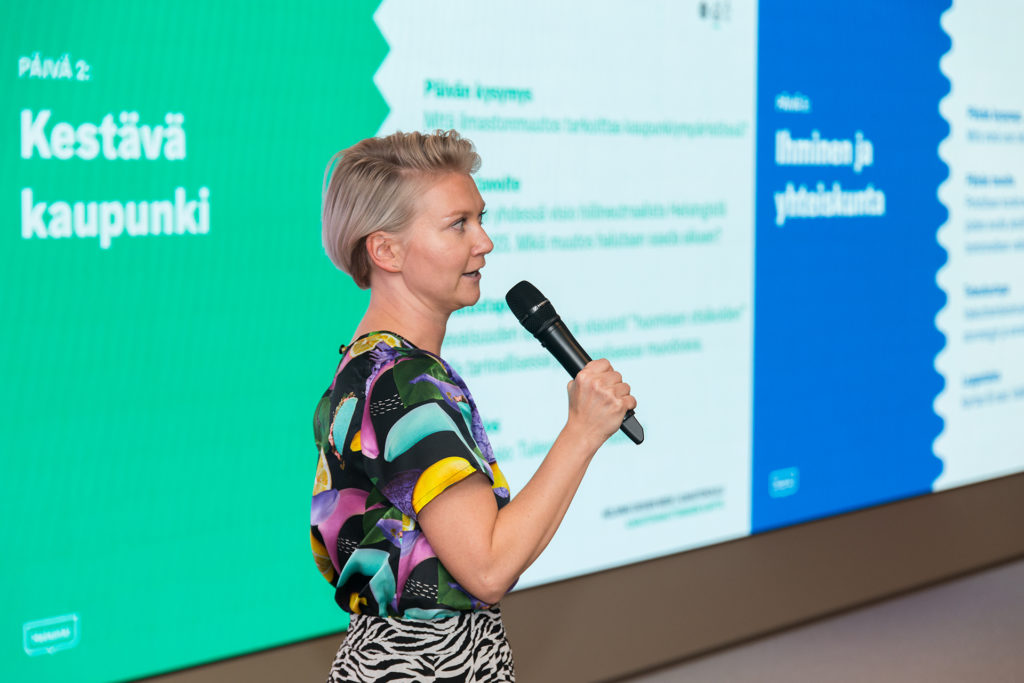
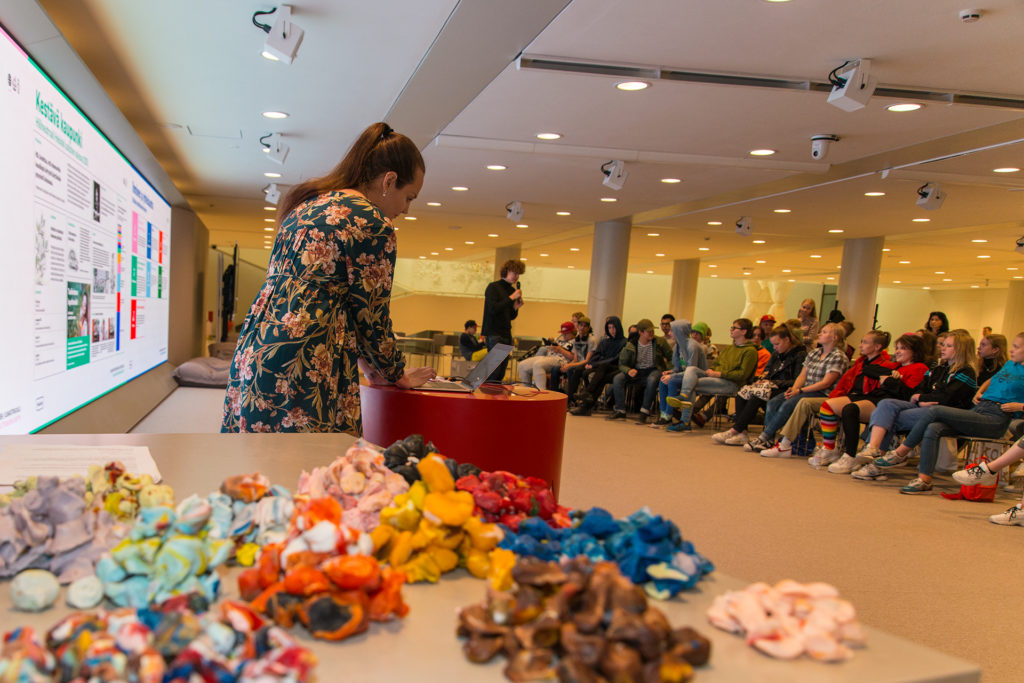

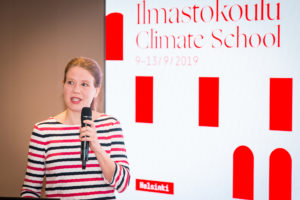
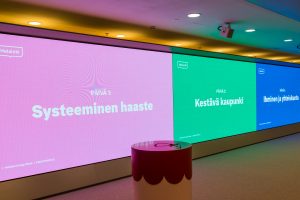
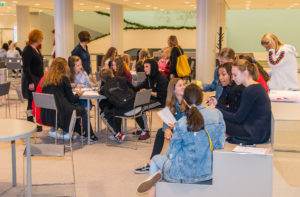
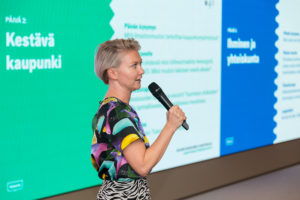
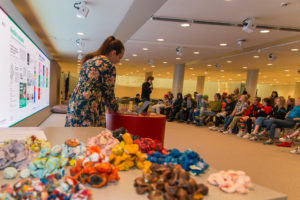

Novel approach to climate change with the help of design
The production of the Climate Change Map was guided by service design professionals from LINK Design and Development. The idea was to create a synthesis of specialist knowledge and the observations and experiences of young people.
The young people attending Climate School worked on their ideas related to sustainable development into a three-part Climate Change Map in a participative design process.
- The first part of the map dealt with the systemic, structural challenge to discover the consequences of climate change and the means to impact climate change.
- The second part consisted of imaginary local news about carbon-neutral Helsinki 2035 produced by the young people.
- The third part dealt with the human being and society. Here young people ideated concrete means to influence and to participate in climate action.
Lessons of Climate School
- Climate School was an example of the phenomenon-based approach to problem solving.
- Design provided a means to work with young people on a theme that can cause anxiety. Thus design was a means to promote active participation.
- For the City, the approach offered an opportunity to create a new type of interaction model for young people, who are the decision-makers of the future.
Climate School was organized by the City of Helsinki and Helsinki Design Week in cooperation with Aalto University, the University of Helsinki and Urban Academy. Climate School was held at the event square of the Helsinki City Hall 9–13 September 2019.
Photos: Ilkka Ranta-aho

